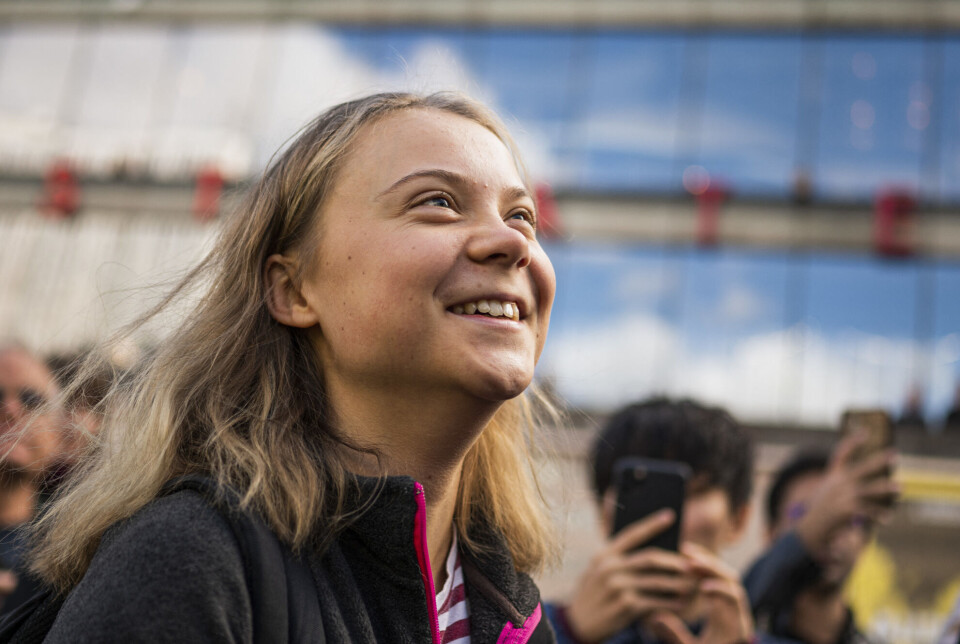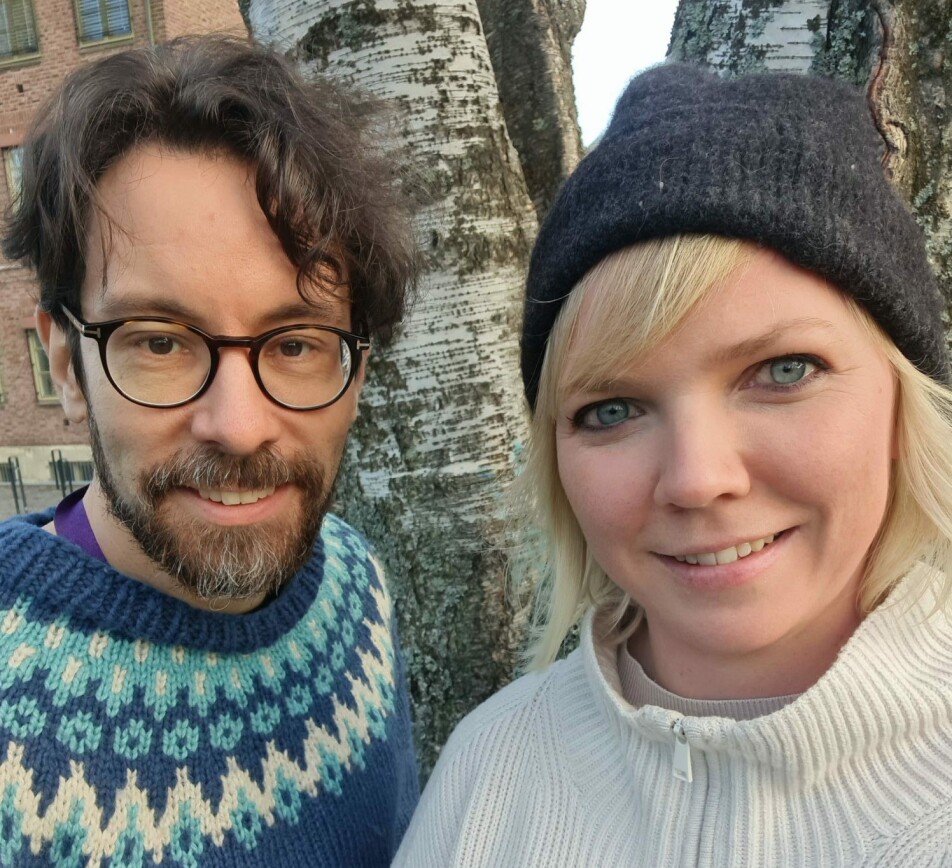THIS ARTICLE/PRESS RELEASE IS PAID FOR AND PRESENTED BY NTNU Norwegian University of Science and Technology - read more

New study: Greta Thunberg is a role model for Norwegian youth
Norwegian youth from all over the country and across social affiliation point to the Swedish teen activist as a role model and source of inspiration for climate engagement.
Since 2017, nearly 3,000 young people aged 17 to 20 have shared what they consider important in Norwegian society, and whom they regard as good role models.
The survey showed a clear shift in Norwegian youth in autumn 2019, when Greta Thunberg received extensive media attention, and the "Fridays for future" movement spread with school strikes in several countries.
“What we see is that Greta Thunberg has been very important in uniting young people who were already concerned about the climate,” researcher Jan Frode Haugseth says.
She also helped make more young people climate-conscious, especially in 2019.

Study of young people’s engagement
Haugseth is an associate professor in pedagogy at NTNU’s Department of Teacher Education. He heads the research programme that investigates commitment and values among young people in Norway.
Haugseth and colleague Eli Smeplass have written an article published in the journal Sociology.
“When we started these surveys in 2017, we had no particular ambition to look at climate awareness. We wanted to know what young people think about the present and what inspires them,” Haugseth says. “When we observed how the responses changed in autumn 2019, and that young people themselves were mentioning Greta Thunberg and the importance of addressing climate and nature issues, we thought this would be an interesting object of study."
Let young people speak freely
One problem with regular surveys is that it is difficult to gauge how engaged the respondents really are. The link between what young people claim is important and how they actually behave is ambiguous.
In fact, some research suggests that even if young people answer that the climate threat is serious in surveys, they still live lives that involve a lot of consumption and relatively high emissions.
In other words, young people are aware of climate issues on a theoretical and broader level. But they seem to lack what the researchers call climate change reflexivity when it comes to their personal actions.
“We wanted a method to be able to measure young people’s awareness of these issues. We found that we had the opportunity to study what young people tell us about the climate threat by simply asking them to speak freely, rather than posing questions. This ensures deeper reflection than survey questions, which are often answered quickly and without reflecting much,” Haugseth says.
Before and after 2019
The surveys contained open text fields for respondents to express what they thought was important in society and to define their role models in their own words.
“We found that in 2019 a lot more young people wrote that the climate threat was important, and they were concerned with the transition to a sustainable economy, restructuring and climate solidarity,” Haugseth says. “The answers from 2017 were less detailed. Youth were becoming concerned that other ways of managing society had to be found. We could see that after 2019 they argued in a more holistic way."
This tendency applied to young people across geographical and social affiliations.
“Research often shows that social belonging, like the parents’ level of education and occupation, affects what young people are interested in. But here we see that Greta Thunberg managed to mobilise young people in a broader sense,” Smeplass says.
The researchers also found that climate-conscious young people in 2019, 2020 and 2021 described themselves as ‘we’ to a greater extent than in 2017. They come from different places and don’t know each other, but have nevertheless developed a kind of community.
"They’ve become aware of each other, that there are more people than themselves who are concerned about the climate, and that more versatile solutions are needed than what the adult generation has come up with,” she says.
Youth mention Thunberg – not climate reports
The researchers can’t rule out that increased media attention to climate issues could also have influenced young people’s consciousness around the topic – without Thunberg’s influence.
“But Thunberg impacted young people to a much greater extent than the UN climate panel managed to do. None of the young people mention the climate reports in their answers,” Smeplass says.
Young people are engaged with their peers. They’re looking to their age cohorts, not upwards to what their parents are involved with.
“Greta Thunberg represents the young generation. She managed to challenge world leaders and the elite and set the agenda. She is quite simply a young person who managed to back the elite against the wall, and a number of young people write that they admire her for this,” Smeplass says.
In the pandemic years 2020 and 2021, fewer young people mentioned Thunberg and climate commitment than in 2019. Could Covid-19 have caused young people to become less concerned about climate issues again?
Haugseth says that the survey shows that young people have a deeper reflection on climate issues, with a more clearly pronounced 'we'. This can at least be demonstrated one year into the pandemic, until spring 2021. Simultaneously, fewer youth report that they think the climate threat is as serious in surveys.
“It’s difficult for researchers to predict the future. The broad Greta Thunberg effect that we described in 2019 has been less visible during the pandemic. But the relevancy of her message for young people is a sign that their climate engagement hasn’t disappeared,” Smeplass says.
Down-to-earth argumentation
The researchers believe that young people connect their climate commitment to issues like environmental protection, education, restructuring and solidarity.
“This is a down-to-earth argument that is adapted to the sustainability focus in modern business development, and that we think will become important in the years to come. And a lot of young people still report that they take the climate threat seriously, even if they don’t necessarily talk much about it. This also dispels the notion that the most effective climate resistance is being organised by climate activists who stop traffic and sabotage art,” Haugseth says.
The fact that Greta Thunberg did not participating in last year’s COP27 climate conference COP27 in Sharm El-Sheikh does not necessarily mean that she has any less influence on young people’s climate commitment.
“What we’re interested in is how young people argue for the importance of their climate commitment. Because that tells us something about what they’re really demanding and expecting from the future. In other words, climate summits aren’t necessarily the most effective hotbeds for youth climate engagement going forward,” Smeplass says.
Reference:
Jan Frode Haugseth and Eli Smeplass. The Greta Thunberg Effect: A Study of Norwegian Youth’s Reflexivity on Climate Change, Sociology, 2022. DOI: 10.1177/00380385221122416
---
This article/press release was updated on 10 January, the first version stated that Thunberg would not attend this year's COP27, this was changed to did not attend last year's COP27.
Read more content from NTNU:
-
Why is nothing being done about the destruction of nature?“We hand over the data, but then it stops there"
-
Researchers now know more about why quick clay is so unstable
-
Many mothers do not show up for postnatal check-ups
-
This woman's grave from the Viking Age excites archaeologists
-
The EU recommended a new method for making smoked salmon. But what did Norwegians think about this?
-
Ragnhild is the first to receive new cancer treatment: "I hope I can live a little longer"





































